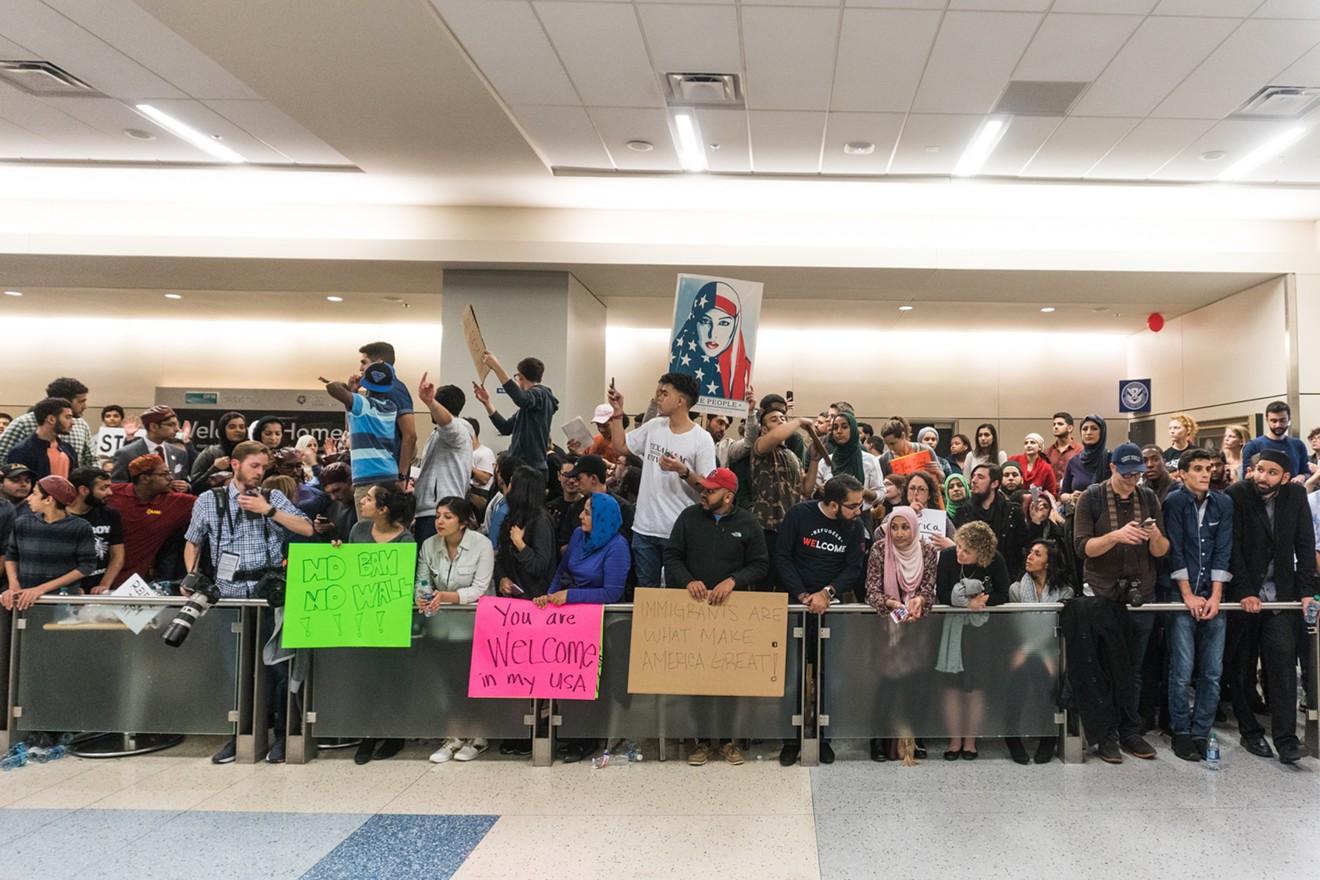Wednesday, Texas Attorney General Ken Paxton submitted an amicus brief to the 9th U.S. Circuit Court of Appeals in support of President Donald Trump’s executive order banning travel to the United States by citizens of seven Muslim-majority countries. In doing so, Paxton ensured that Texas was the first state to side with the Trump administration’s travel ban, joining the fight against a court that has already placed a temporary hold on enforcing the president’s order. Beyond the obvious political statement being made, it’s clear that Paxton’s office spent a great deal of effort on their brief, which checks in at a hefty 46 pages despite the decision it argues against having come down a little over a week ago.
“Like every other State in the Union, [Texas] has a significant interest in protecting its residents’ safety,” Paxton argues in his brief. “But the State itself possesses no authority to set the terms and conditions of entry for aliens seeking to enter the United States, or to restrict the entry of such aliens for foreign-affairs, public-safety, or national-security reasons. Instead, the State relies on the federal Executive Branch to carry out that function, pursuant to the laws of Congress.”
The decision made on Feb. 9 by a three-judge 9th Circuit panel, Paxton says, needs to be overturned by the full 9th Circuit because it is “a remarkable use of the judicial power to interfere with the President’s national-security decisions in an area of strongest executive authority.”
Paxton’s argument stands in contrast to the one Trump’s Department of Justice has pushed so far, that the states — Washington and Minnesota, in the case of the 9th Circuit decision — lack the legal standing to challenge a national security decision made by the executive branch.
So that’s the what. But why is still a question. What is Paxton doing sticking his neck out as the first state attorney general to support the widely protested ban with a new legal argument, one Trump’s team isn’t even making?
“An effective amicus brief is generally not a me-too brief,” Chad Ruback, a Dallas-based appellate attorney, says. “Copying and pasting the arguments that have already been filed wouldn’t accomplish anything.”
Appellate courts, according to Ruback, impose strict length limits on briefs filed by the parties involved in a case. Sometimes, that means that a plaintiff or defendant, like, for example, the Department of Justice, will enlist a friendly party to file an amicus brief, forwarding an argument that couldn’t be wedged into the defendant’s own brief.
“If I have an argument that’s important to me, but that I can’t manage to fit in the word-count or page-count limitations,” Ruback says, “I might consider meeting with some potential amicii to see if they might agree with me if those issues are worth presenting to the court and discuss with them the possibility of them potentially filing an amicus brief.”
While Ruback says he has no direct knowledge of any collaboration between the Trump administration and Paxton’s office — which did not return a request for comment — he says that the two acting in concert would not be “outside the norm of amicus practice.”
“Regardless of whether they were coordinating efforts or not coordinating efforts, Attorney General Paxton’s filing was strategically written so as not to parrot the arguments that President Trump’s administration has already made,” Ruback says.
Despite his years of experience in the appellate court system, Ruback couldn’t be talked into handicapping the ongoing case between Washington and Minnesota and Trump. The constitutional issues are complex to the point of being unique, he says.
“To the best of my knowledge, no president has ever issued an executive order quite like the one that President Trump issued here. A lot of what’s going on is unprecedented,” Ruback says. “That’s a huge amount of work for the lawyers.”
All that work may end up being for naught, however, as Trump announced at Thursday press conference that he plans to roll out another immigration-restricting executive order next week. According to The Associated Press, the Justice Department filed documents in the 9th Circuit asking the court to put the case on hold until a revised ban is issued.
[
{
"name": "Air - MediumRectangle - Inline Content - Mobile Display Size",
"component": "18855504",
"insertPoint": "2",
"requiredCountToDisplay": "2"
},{
"name": "Editor Picks",
"component": "17105533",
"insertPoint": "4",
"requiredCountToDisplay": "1"
},{
"name": "Inline Links",
"component": "18349797",
"insertPoint": "8th",
"startingPoint": 8,
"requiredCountToDisplay": "7",
"maxInsertions": 25
},{
"name": "Air - MediumRectangle - Combo - Inline Content",
"component": "17105532",
"insertPoint": "8th",
"startingPoint": 8,
"requiredCountToDisplay": "7",
"maxInsertions": 25
},{
"name": "Inline Links",
"component": "18349797",
"insertPoint": "8th",
"startingPoint": 12,
"requiredCountToDisplay": "11",
"maxInsertions": 25
},{
"name": "Air - Leaderboard Tower - Combo - Inline Content",
"component": "17105535",
"insertPoint": "8th",
"startingPoint": 12,
"requiredCountToDisplay": "11",
"maxInsertions": 25
}
]












